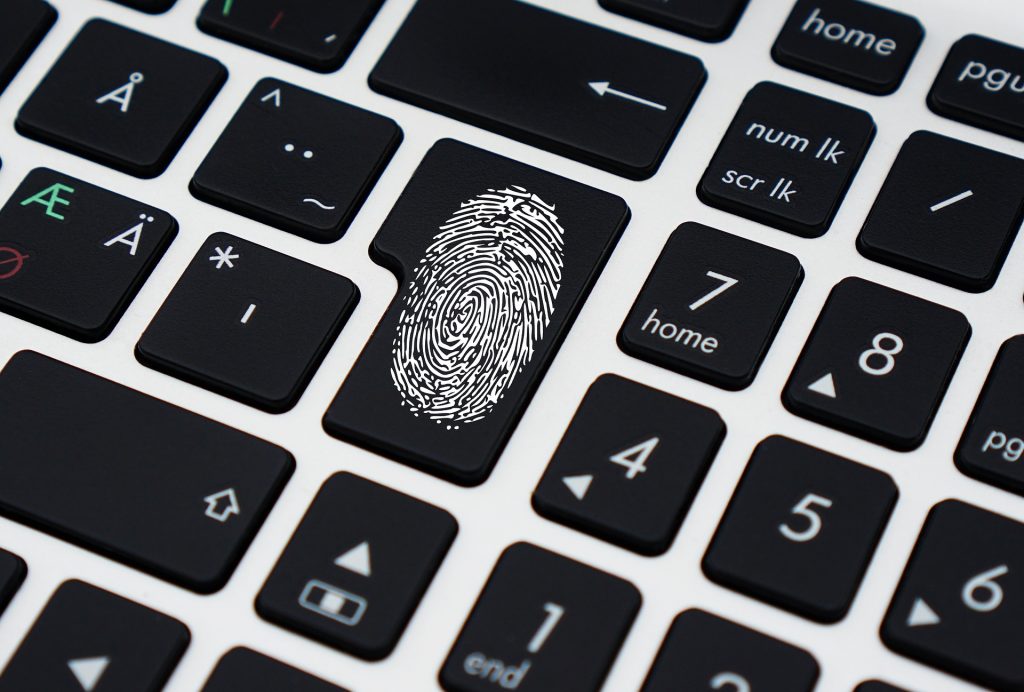How to avoid becoming a victim of cybercrime

Earlier this week, companies across the globe were hit yet again by a cyber attack.
Like the recent ‘WannaCry’ outbreak, the new virus exploits computer operating system weaknesses in order to freeze a user’s machine and demand an untraceable Bitcoin ransom for its safe release.
Such attacks are crippling for businesses but equally as harmful at home. We’re now living in an era where street crime mixes with that of the digital domain, which is why vigilance in both realms is vital.
In this post, we’ve picked out seven ways to stay safe online. And, while it’s impossible to remove every weak link within your digital world, the following tips will ensure you stand a lesser chance of becoming a victim of cybercrime:
1. Change your passwords – regularly
Hands up if you use the same password for every website.
OK…
Now, keep your hand up if it’s a password you’ve used for as long as you can remember.
Oh dear… more than we thought!
As inconvenient as it may seem, one of the best things you can do to protect yourself online is to use different passwords for each website, make them impossible to guess, and change them regularly.
Try out a password manager to make it less of a burden – they’re brilliant tools.

2. Don’t save your home address
Services like Google Maps have made journey planning incredibly straightforward, but they often prompt you to enter your home address to aid the process.
Avoid this wherever you can. You know where you live, and the time saved by not typing it in while route planning is outweighed by the risks of advertising your address to anyone who might use it to their advantage.

3. If an email raises a suspicion – delete it
Email remains a common vehicle for viruses and effective tool for cybercriminals. If you receive a message that raises a suspicion – no matter how small – delete it.
Remember – banks will never ask you for personal details via email, and if an offer sounds too good to be true, it probably is.

4. If biometric security is available – use it
If you have a relatively new iPhone or Android-based device, it will most likely possess some form of biometric security.
Usually, this is provided in the form of a fingerprint scanner, so check your settings screen.
The alternative is to use a passcode, which is inherently insecure. So, if you’re currently tapping a number into your phone to unlock it, try out the fingerprint scanner instead; it should be far easier to use and will definitely be more secure.

5. Don’t write down your passwords or PIN codes
We’ve all done it – now’s the time to stop doing it; don’t write down your access details for anything.
The same goes for your WiFi; ensure you change your default router password and avoid writing down the new one (store it in your lovely new password manager, instead!).

6. Log out of everything
Whether you’re logged into your webmail, favourite social network or bank account – make sure you go through the process of logging out when finished, particularly when you’re using a public or work computer.
Most websites will automatically log you out after a while anyway, but don’t rely on that – it’ll take someone seconds to get what they need after you’ve vacated the seat.

7. Wipe your devices before selling them
The secondhand market for smartphones, tablets and laptops is a vibrant one and it makes sense to recycle your devices in this way – particularly if you can make a few quid from doing so.
When you’ve successfully sold an old device, make sure you completely wipe it and return it to factory settings – even if it’s being sold to someone you know.
Your data is your data – it should never be let out of your sight.

Final thought
Despite our best efforts, cybercriminals often find a way in, but if you follow our tips above, you’ll create a barricade that forces most people intent on stealing your data to seek out an easier target.
